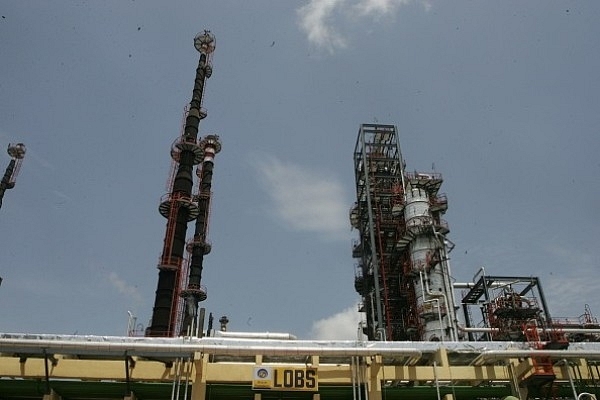Economy
BPCL Privatisation: Government Needs To Be Proactive To Prevent Derailment By Trade Unions
- The government could try a soft approach with BPCL and a harder line with Air India. What it should not do is blink in the face of union resistance.
- Addressing concerns over privatisation is one thing, enabling trouble-makers to scuttle government policy is quite another.

The BPCL refinery in Mumbai. (Manoj Patil/Hindustan Times via GettyImages)
The Narendra Modi government faces its first big challenge to its resolve to privatise Bharat Petroleum Corporation Limited (BPCL) with its employees planning a one-day strike on 28 November. Air India, which could also be privatised this fiscal year, may also see similar disruptions once the process of sale kicks off after cabinet approval.
The government needs to be very proactive to prevent a sabotage by workers and vested interests of its privatisation plans. This is particularly true of BPCL, which is a cash cow and valued at a massive Rs 110,000 crore. The government’s 53 per cent stake sale, with control premium, could thus be valued in the Rs 60,000 crore-plus range.
A union-led sabotage of the privatisation will set back the Air India, Shipping Corporation and Concor privatisations that are to follow later. Hence it is important to tackle this situation with sensitivity and firmness.
It is natural for any worker to feel threatened by a management change. It is only fair that the government works on several strategies to address their concerns.
One, it could guarantee service conditions for all existing workers, with future exits being limited to voluntary separation schemes. This clause could be a part of the bidding conditions for potential suitors.
Two, it could sweeten the deal with special offers of shares at lower-than-market values to employees.
Three, a special bonus payment to workers can also be offered to make sure that the unions don’t create havoc.
If BPCL goes through without mishap, it should be easier to ensure that the other privatisations also materialise without hiccups.
As for Air India, the government actually holds the upper hand. It should offer its workers a better deal compared to potential bidders, with a 2 per cent discount on the price bids received from private parties. If Air India’s wealthy pilots and large employee base believe they can run the airline profitably, they can do so with a leveraged buyout. Trying to blackmail the government on privatisation is unacceptable. Given the losses at the airline, every employee knows he or she is living on borrowed time.
Unlike BPCL, which is a genuine crown jewel, Air India is a former maharajah living on life support. It is possible for the government to threaten permanent closure if the employees don’t fall in line.
The government could try a soft approach with BPCL and a harder line with Air India. What it should not do is blink in the face of union resistance.
Addressing concerns over privatisation is one thing, enabling trouble-makers to scuttle government policy is quite another.
Support Swarajya's 50 Ground Reports Project & Sponsor A Story
Every general election Swarajya does a 50 ground reports project.
Aimed only at serious readers and those who appreciate the nuances of political undercurrents, the project provides a sense of India's electoral landscape. As you know, these reports are produced after considerable investment of travel, time and effort on the ground.
This time too we've kicked off the project in style and have covered over 30 constituencies already. If you're someone who appreciates such work and have enjoyed our coverage please consider sponsoring a ground report for just Rs 2999 to Rs 19,999 - it goes a long way in helping us produce more quality reportage.
You can also back this project by becoming a subscriber for as little as Rs 999 - so do click on this links and choose a plan that suits you and back us.
Click below to contribute.
Latest